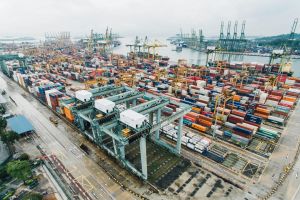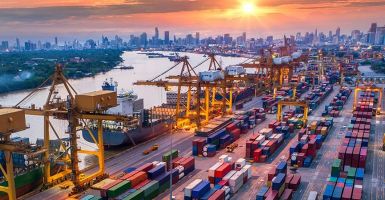India's G20 Legacy: A Comprehensive Assessment of Achievements

India's G20 presidency, an important international forum, has gained praise for its capacity to bring member nations together around the urgent subject of the situation in Ukraine. Foreign policy experts have praised India's involvement in enabling dialogues and elevating the issues facing emerging economies, reinforcing the country's standing as a reasonable voice in world diplomacy.
The G20 members were gathered around the table to have substantive discussions about the conflict in Ukraine under India's direction. This diplomatic success highlighted India's dedication to promoting peaceful solutions to international disputes and its ability to build consensus among various viewpoints.
India's presidency stressed the significance of developing economies in establishing international priorities. India established itself within the G20 framework as a mediator and a supporter of the aspirations and interests of developing economies by supporting their points of view and issues.
India's leadership of the G20 highlighted both its diplomatic skill and commitment to advancing peace, collaboration, and equitable representation on the international scene. It is evidence of India's reputation in the field of international affairs as a logical and inclusive voice.
Recommended Read: Alliance I2U2: Pioneering partnerships with innovations and development in food security along with sustainability across the four nations
The direction of future negotiations on significant economic issues, including climate financing, which for the first time put a $5.9 trillion number to the green financing requirements for developing countries, reforms in multilateral banks, international taxation, and sustainable development, was set by the New Delhi Declaration, which was released on the first day of the two-day G20 Summit.
People had anticipated that the declaration might not materialize, especially considering the potential opposition from China and Russia regarding the Ukraine paragraph.
Amitabh Kant, India's Sherpa to the G20, said on Saturday that his country worked closely with Brazil, South Africa, and Indonesia on the Russia-Ukraine situation, where the emerging markets played a crucial role. The proclamation also acknowledged the role Turkiye and the UN-mediated Istanbul Agreements played in securing the successful implementation of the Black Sea Grain Agreement and the prompt and uninterrupted flow of grain, food, and fertilizer imports from the Russian Federation and Ukraine.
India worked closely with Brazil, South Africa, and Indonesia on the Russia-Ukraine scenario, where the developing markets played a significant role, according to Amitabh Kant, India's Sherpa to the G20, who spoke on Saturday. The proclamation also acknowledged the role Turkiye and the UN-mediated Istanbul Agreements played in securing the successful implementation of the Black Sea Grain Agreement and the prompt and uninterrupted flow of grain, food, and fertilizer imports from the Russian Federation and Ukraine.
Related Read: Tayyip Erdogan says India is a Great trade partner - Subsequent to G20 summit
The most intricate facet of the entire #G20 Summit revolved around the arduous task of achieving consensus on critical geopolitical matters, particularly the Russia-Ukraine conflict.
This extensive and rigorous negotiation process exemplifies the G20's enduring role as a catalyst for international cooperation and a forum where world leaders work together to address the most formidable challenges of our time.
Dogra continued, "India's legacy as a voice of reason, of non-alignment, and opposition to racism and colonialism in the 1950s and 1960s and later has stood well in the G20 negotiations, where the Prime Minister's name and his intervention helped to clench the crucial agreement with all countries."
“Kudos to the Prime Minister's leadership. I'm sure his telephone calls to other leaders would have made the difference and agreed text was stamped on, within time," Dogra said.
In the midst of strenuous negotiations to resolve differences, the agreement on a unified declaration represents a tremendous diplomatic achievement. According to the statement, all governments must refrain from using force or threatening to use it against another country's territorial integrity, sovereignty, or political independence in order to prevent the war in Ukraine from violating the UN Charter. Nuclear weapons use or threat of use is not permitted. There was no mention of Russian assault in Ukraine.
Recommended Read: “Great Opportunity” This Year Rishi Sunak, UK PM Optimistic About Signing FTA With India
The world is one family mentality, according to G20 chief coordinator Harsh Vardhan Shringla, was the most important lesson learned from the current leaders' meeting in New Delhi.
"As you've witnessed, the leaders' summit yielded substantial results, including the New Delhi declaration and the historic inclusion of the African Union as a permanent member of the G20. These achievements mark significant milestones during India's presidency. In the world of multilateral diplomacy, negotiations often extend until the eleventh hour. However, during the G20 summit, Prime Minister announced a consensus decision on the very first day, in the early afternoon. This represents a highly noteworthy and impactful outcome," commented Mr. Shringla.
The declaration also listed the African Union as a permanent G20 member and acknowledged the significance of the continent to the world economy. The South African president's spokesperson, Vincent Magwenya, told Mint on the sidelines that India's contribution to the inclusion of the Global South in the Summit set the standard for future discussions by all multilateral forums, ensuring that the voice of developing and underdeveloped nations would have a permanent platform.
“In fact, what's going to happen you're going to see an accelerated push towards the reforms that we have been seeking in other multilateral forums, like the UN Security Council, global institutions, financial institutions in terms of the disbursements of funds in terms of how loans are structured," He continued by pointing out that the emerging nations would be looking for a more equitable distribution of resources.
Related Read: A Game changing investment - G20 Summit: Joe Biden on the India-Middle & the East-Europe Corridor






